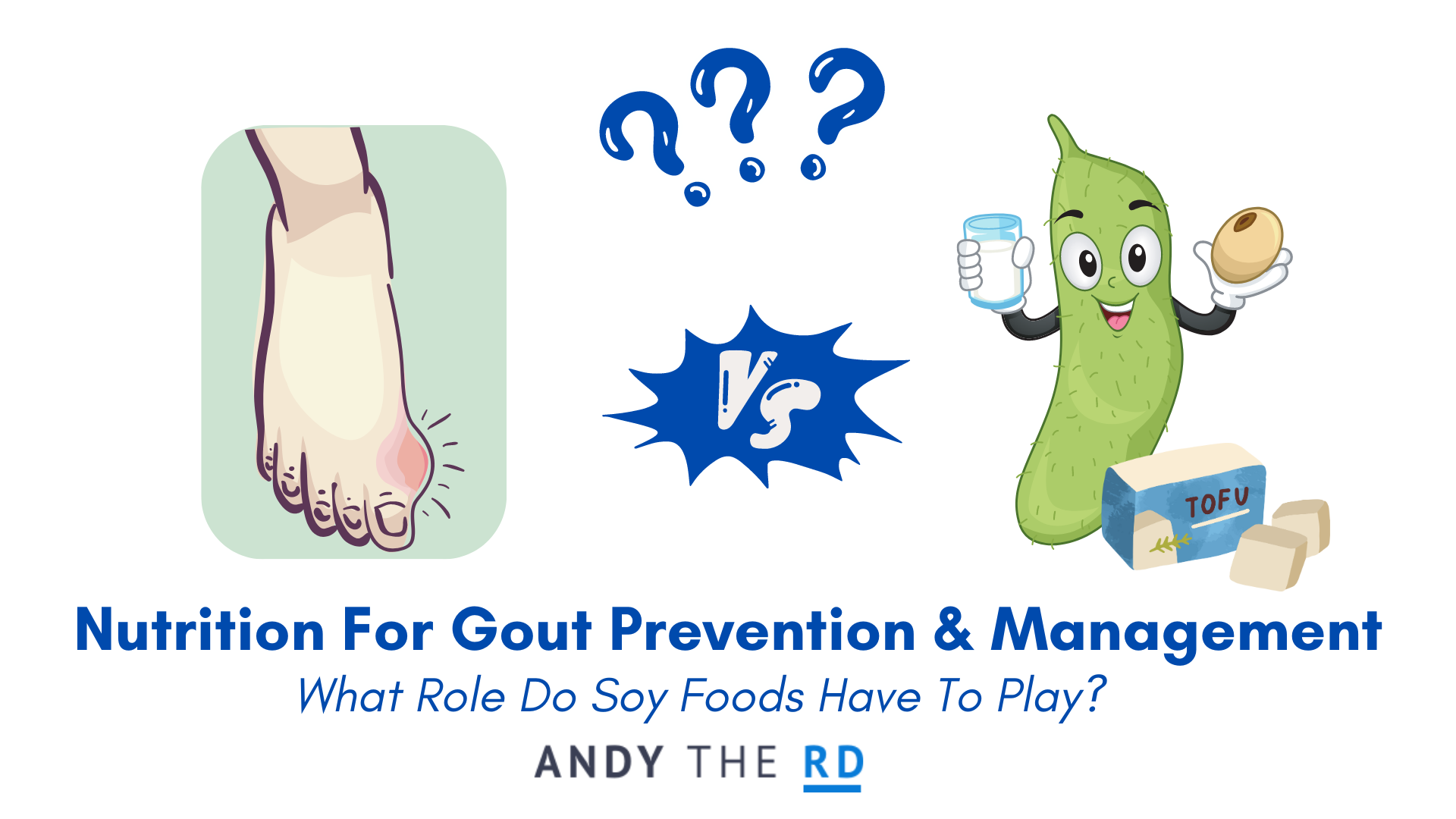Gout is an extremely common form of inflammatory arthritis, affecting 4% of the U.S. population.
Men, particularly as they age, are much more likely to sufferer from gout.
More recent and troubling data suggest that the global incidence of gout has increased substantially, from 38.7 to 45.9 per 100,000 , in the 15-39 year old demographic over the last few decades.
With that in mind, there could hardly be a more suitable Men’s Health Month topic for me to explore than gout.
Today’s content, presented in collaboration with Soy Nutrition Institute (SNI) Global, includes the latest science on the role diet plays in the prevention and management of gout.
Let’s get to the good stuff.
Nutrition For Gout – A Primer
A 2018 systematic review and meta-analysis that included 19 observational studies identified 4 dietary factors most strongly associated with an increased risk of gout:
- Alcohol
- Red Meat
- Seafood
- Fructose*
*Data indicate that much more of our fructose intake comes from sugar-sweetened beverages than it does from fruit and 100% fruit juices.
Conversely, gout risk was lower in those who consumed more:
- Soy foods
- Coffee
- Dairy
Now that I’ve laid the groundwork, let’s take a moment to explore in more detail why certain foods may increase gout risk.
Most evidence indicates it may have something to do with their high purine content.
Purines are naturally occurring compounds that exist in varying amounts but are particularly high in red meat and certain types of seafood.
Purines are metabolized into uric acid, the levels of which can build up over time and contribute to crystal formation around the joints which leads to the inflammatory symptoms associated with gout.
It is possible, however, that not all purine-rich foods affect gout risk in the same way – let’s explore why next.
Plant-Based Purines & Gout
In the systematic review and meta-analysis that I referenced in the previous section, the authors also observed that high-purine vegetables were associated with a reduced risk of gout.
Soy foods, by the way, are considered to have a moderate purine content.
Yet, papers that have reviewed aggregate data on their interaction with gout have not demonstrated that consuming soy foods increases gout risk.
It has also been noted that vegetarians tend to have lower circulating levels of uric acid than nonvegetarians, another intriguing finding supporting the potentially unique nature of purines in plant-based foods such as soy and vegetables.
Furthermore, a meta-analysis of randomized controlled trials found long-term soy intake had no effect on uric acid levels.
A broad review of the health effects of soy, published last year in Frontiers In Nutrition, referenced a number of intervention trials demonstrating that typical levels of soy intake do not meaningfully affect uric acid levels or gout risk.
Additionally, the British Society of Rheumatology recommends the consumption of soy foods for the management of gout.
Final Thoughts
The relationship between diet and gout may not be as clear cut and well characterized as it is for other common health conditions, but all signs point towards a more diverse protein intake including more soy and less red meat as being protective.
It is also true that vitamin C intake has been inversely associated with uric acid levels in men – that is to say that higher vitamin C intake may lead to lower uric acid levels.
Savvy plant-based eaters often combine vitamin C-rich foods (kiwi, strawberry, citrus, broccoli, tomato, brussel sprouts, bell pepper, etc.) with plant protein sources like soy foods to enhance the absorption of non-heme iron.
Hopefully, today’s content helped detail why those at risk of developing gout or with this disease can make soy foods are part of their diet.
When navigating a complex condition like gout it is best to consult with a qualified health professional.
Until next time,
Andy De Santis RD MPH
This post is in collaboration with the Soy Nutrition Institute (SNI) Global, an organization leading the way in soy and health research and education, and U.S. Soy.



